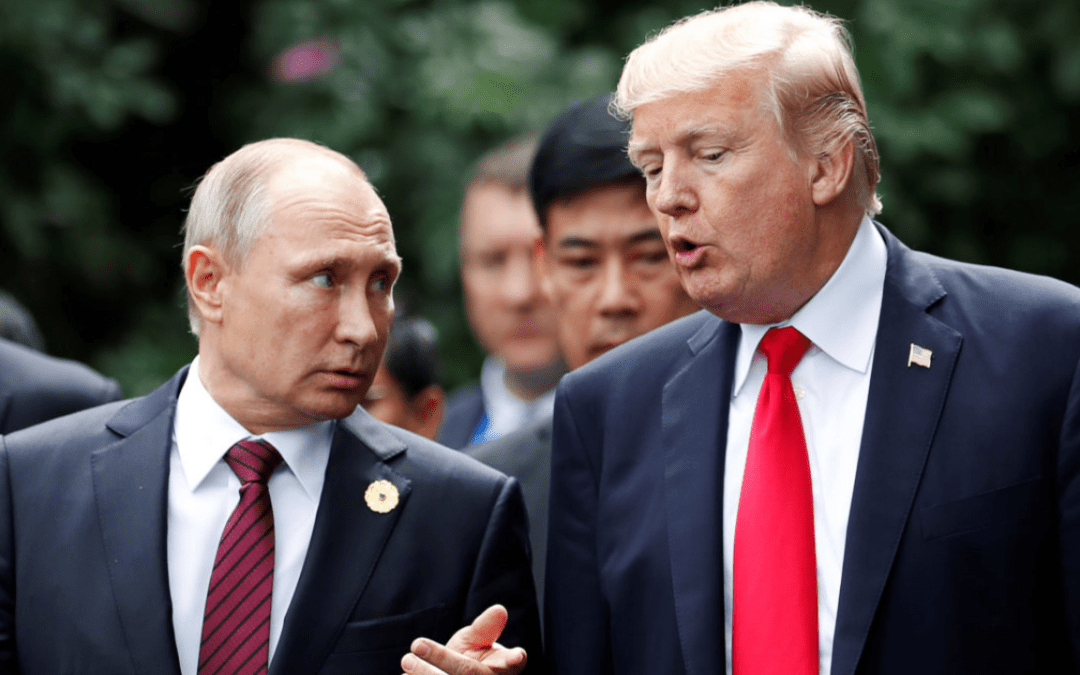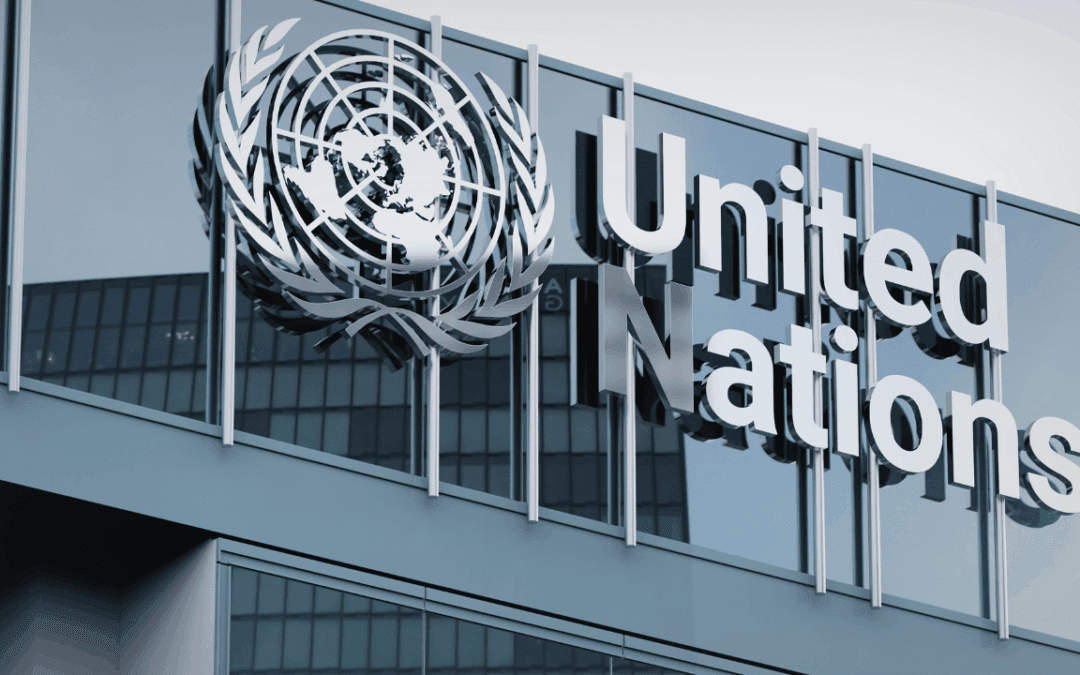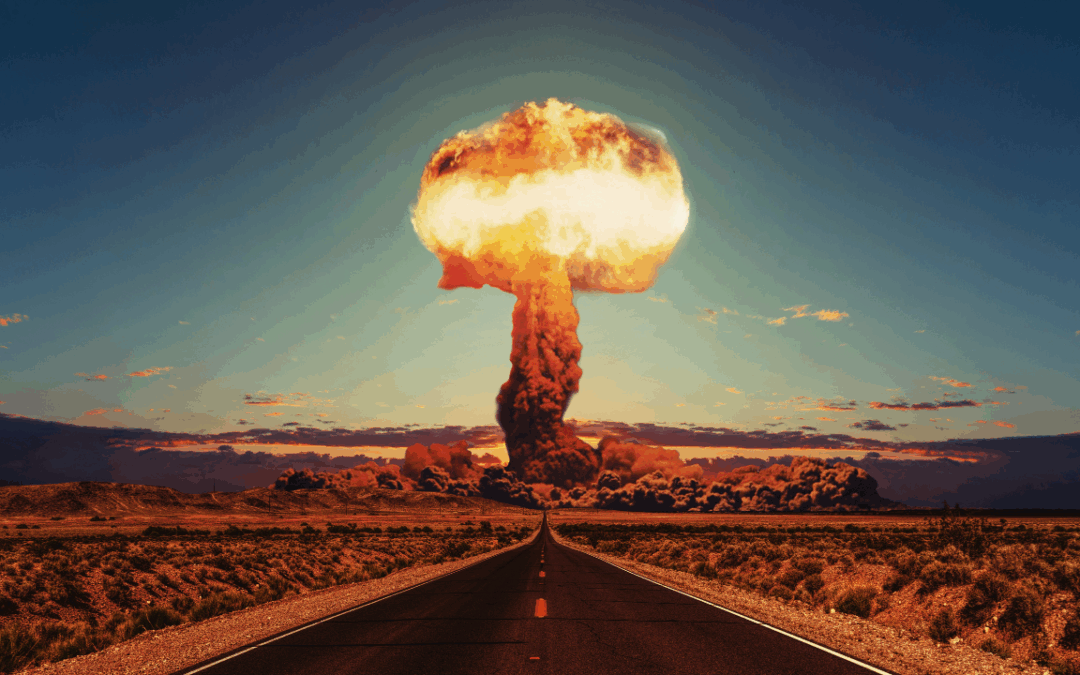
by Lawrence Wittner | Feb 17, 2026 | Disarmament
On January 27, 2026, the editors of the Bulletin of the Atomic Scientists moved the hands of their famous “Doomsday Clock” to 85 seconds to midnight―the closest setting, since the appearance of the clock in 1946, to nuclear annihilation.
This grim appraisal has impressive evidence to support it.
The New Start Treaty, the last of the major nuclear arms control and disarmament treaties between the United States and Russia, expired on February 5, without any serious attempt to replace it. New Start’s demise enables both nations, which possess about 86 percent of the world’s 12,321 nuclear weapons, to move beyond the strict limits set by the treaty on the number of their strategic nuclear weapons (the most powerful, most devastating kind), thus enhancing the ability of their governments to reduce the world to a charred wasteland.
Actually, a nuclear arms race has been gathering steam for years, as nearly all the governments of the nine nuclear powers (which, in addition to Russia and the United States, include China, Britain, France, Israel, India, Pakistan, and North Korea) scramble to upgrade existing weapons systems and add newer versions. China’s nuclear arsenal is the fastest-growing among them. “The era of reductions in the number of nuclear weapons in the world . . . is coming to an end,” observed Hans Kristensen, a highly regarded expert on nuclear armament and disarmament. “Instead, we see a clear trend of growing nuclear arsenals, sharpened nuclear rhetoric, and the abandonment of arms control agreements.”
The U.S. government is currently immersed in a $1.7 trillion nuclear “modernization” program that President Donald Trump has championed and repeatedly lauded. As early as February 2018, he boasted that his administration was “creating a brand-new nuclear force. We’re gonna be so far ahead of everybody else in nuclear like you’ve never seen before.” In late October 2025, to facilitate the U.S. nuclear buildup, Trump ordered the Pentagon to prepare to resume U.S. nuclear weapons testing, which had ceased 33 years before. In line with the Comprehensive Test Ban Treaty of 1996, signed by 187 nations (including the United States), no nuclear power (other than the rogue nation of North Korea) has conducted explosive nuclear testing in over 25 years.
Another sign of the escalating nuclear danger is the revival of implicit and explicit threats to initiate nuclear war. Such threats, which declined with the end of the Cold War, have resurfaced in recent years. When angered by the policies of other nations, Donald Trump, Kim Jong Un, and Vladimir Putin have repeatedly and publicly threatened them with nuclear destruction. According to the U.S. government’s Voice of America, the Russian government, in the context of its invasion of Ukraine, issued 135 nuclear threats between February 2022 and December 17, 2024. Although some national security experts have discounted most Russian threats as manipulative rather than serious, in November 2022, Chinese leader Xi Jinping thought the matter serious enough to publicly chide his professed ally, Putin, for threatening to resort to nuclear arms in Ukraine.
Underlying this drift toward nuclear war are the growing conflicts among nations―conflicts that have significantly weakened international cooperation and the United Nations. As the editors of the Bulletin of the Atomic Scientists put it, rather than heed past warnings of catastrophe, “Russia, China, the United States, and other major countries have instead become increasingly aggressive, adversarial, and nationalistic.” Consequently, “hard-won global understandings are collapsing, accelerating a winner-takes-all great power competition and undermining the international cooperation critical to reducing the risks of nuclear war.”
But this is not necessarily the end of the story―or of the world.
After all, much the same situation existed in the second half of the twentieth century, when conflicts among the great powers fueled a dangerous nuclear arms race that, at numerous junctures, threatened to spiral into full-scale nuclear war. And, in response, a massive grassroots campaign emerged to save the world from nuclear annihilation. Although that campaign did not succeed in banning the bomb, it did manage to curb the nuclear arms race, reduce the number of nuclear weapons by more than 80 percent, and prevent a much-feared nuclear catastrophe.
Furthermore, in the early twenty-first century, there have been new and important developments. The worldwide remnants of the nuclear disarmament movement regrouped as the International Campaign to Abolish Nuclear Weapons and, joined by farsighted officials in smaller, non-nuclear nations, drew upon the United Nations to sponsor a series of antinuclear conferences. In 2017, by a vote of 122 to 1 (with 1 abstention), delegates at one of these UN conferences adopted the Treaty on the Prohibition of Nuclear Weapons (TPNW). Although all nine nuclear powers strongly opposed the TPNW―which banned the use, threatened use, development, manufacture, acquisition, possession, stockpiling, stationing, and installation of nuclear weapons―the treaty secured sufficient national backing to enter into force in January 2021. Thus far, it has been signed by 99 countries―a majority of the world’s nations.
In addition to the efficacy of public pressure for nuclear disarmament and the existence of a treaty banning nuclear weapons, at least one other factor points the way toward a non-nuclear future: the self-defeating nature—indeed, the insanity―of nuclear war. With even a single nuclear bomb capable of killing millions of people and leaving the desperate survivors crawling painfully through a burnt-out, radioactive hell, even a nuclear “victory” is a defeat. In the aftermath of a nuclear war, as Soviet leader Nikita Khrushchev is believed to have said, “the survivors would envy the dead.” It’s a lesson that most people around the world have learned, although not perhaps the lunatics.
Lunatics, of course, exist, and some of them, unfortunately, govern modern nations and ignore international law.
Even so, although we are on the road to nuclear war, there is still time to take a deep breath, think about where we are going, and turn around.

by Lawrence Wittner | Jan 25, 2026 | Global Justice, Peace
There is a widening gap today between global possibilities and global realities.
The global realities are quite grim.
Despite some advances in countering worldwide poverty, it remains at a startlingly high level. According to the World Bank, half of humanity lives on less than $6.85 per day per person, with over 700 million people living on less than $2.15 per day.
Moreover, economic inequality is vast and increasing. A recently-released World Inequality Report, produced in conjunction with the United Nations, found that, in almost every region of the world, the richest 1 percent is wealthier than the bottom 90 percent combined. Indeed, the richest 0.001 percent of the world’s population controls three times the wealth of the poorest half, and its wealth is growing at a faster rate.
As the charitable organization Oxfam has observed, there is no morally defensible justification for this state of affairs. “Extreme wealth is not accumulated simply as a reward for extreme talent,” it has noted. “The majority of billionaire wealth . . . is unearned, derived from inheritance, crony connections, and monopolistic power.” Moreover, billionaires and giant corporations are fostering greater economic inequality and misery by opposing labor laws and policies that benefit workers, undermining progressive taxation, employing modern colonial systems of wealth extraction in the Global South, and using monopoly power to control markets and set the rules and terms of exchange.
Furthermore, when it comes to respecting international law, the rulers of some powerful nations are behaving increasingly like gangsters.
Donald Trump is particularly flagrant in this regard. During his second term as President of the United States, he has already bombed seven nations (Iran, Iraq, Nigeria, Somalia, Syria, Venezuela, and Yemen), threatened to invade or seize five others (Canada, Colombia, Cuba, Greenland, and Mexico ), blown up 33 foreign boats and their sailors, kidnapped the president of a sovereign nation (Venezuela), and announced plans to “run” Venezuela and take control of its vast oil resources. “I don’t need international law,” he explained.
Trump’s “America First” policy―redolent of traditional great power imperialism―is complemented by other measures showing contempt for key international institutions. Trump quickly withdrew the U.S. government from leading UN agencies like the World Health Organization and the UN Human Rights Council, refused to participate in the UN Relief and Works Agency, and announced plans to withdraw from UNESCO. On January 7, 2026, the White House followed up by announcing U.S. withdrawal from 66 international and UN entities. It has also withheld at least two years of mandated dues to the UN’s regular budget and has placed sanctions on the judges and chief prosecutor of the International Criminal Court.
Clearly, Trump has other priorities. He dramatically increased U.S. military spending soon after he returned to power and, in January 2026, proposed raising military spending by another $600 billion to a record $1.5 trillion, thereby creating his “Dream Military.” Apparently, this dream does not include ending the menace of nuclear annihilation, for―asked about renewing the last nuclear arms control agreement remaining with Russia, scheduled to expire next month―Trump responded: “If it expires, it expires.”
Unfortunately, leaders of other nations are also working full-time to destroy what remains of international law and humanity’s hopes for the future.
Vladimir Putin has stopped at nothing to revive what he considers Russia’s imperial glory by waging nearly four years of war to conquer and annex his far smaller, weaker neighbor, Ukraine. Ignoring strong condemnations by the UN General Assembly, the International Court of Justice, and the International Criminal Court, Putin has pressed on with an imperialist war that has reduced cities to rubble, damaged or destroyed thousands of schools and health care facilities, and sent 6 million Ukrainians fleeing abroad. The wounded or dead number hundreds of thousands of Ukrainians and as many as 1.2 million Russian soldiers.
Nor is this the extent of Putin’s military interventionism. Until quite recently, he conducted a brutal bombing campaign for nearly a decade in Syria to prop up the Assad dictatorship against its domestic foes. He also employed the Wagner Group, a shadowy private mercenary army headquartered in Russia, to conduct military operations elsewhere in the Middle East and in numerous African nations.
Like Trump, Putin has scrapped nuclear arms control agreements and occasionally threatened nuclear war.
Other national rulers, enamored with military power and widening their realms, have also turned their countries into rogue nations. Kim Jong Un, despite offers from the South Korean and U.S. governments to improve diplomatic relations, has chosen instead to dramatically expand North Korea’s nuclear arsenal, threaten nuclear war, and dispatch more than 14,000 combat troops to help Russia subdue Ukraine. Benjamin Netanyahu, while constantly claiming Israel’s victimization, has in fact superintended a genocidal slaughter of Palestinian civilians, staged military attacks on numerous nations, and―in defiance of a ruling by the International Court of Justice―refused to end Israel’s decades-long occupation of Palestinian territory.
And yet, the possibilities for reversing this sad state of affairs are enormous, for―thanks to a variety of factors, ranging from increases in knowledge to advances in economic productivity―it’s finally feasible for all of humanity to lead decent and fulfilling lives.
No longer is poverty necessary, for the enormous global economy can produce adequate food, goods, and services for all the world’s people.
Human health and longevity can be improved substantially, thanks to breakthroughs in science and medicine.
Education, communications, transportation, and culture have made huge strides toward enriching human existence and could finally be made available to all.
Meanwhile, the rise of the United Nations and of international law holds the promise of moving beyond the violent, bloodstained past and securing peace, human rights, and justice on the international level.
Although it’s tragic that powerful forces seem intent on building an unjust, lawless, and violent planet, let’s not forget that another world remains possible. Indeed, with an organized international effort, it could be a wonderful world.

by Lawrence Wittner | Dec 19, 2025 | Global Cooperation
Pundits frequently remark on the warm and friendly relationship between Vladimir Putin and Donald Trump. In explanation, some suggest that Putin possesses compromising material on Trump. Others point to their autocratic style and their right-wing agendas.
But another factor plays a role in the Putin-Trump bromance: their embrace of great power imperialism.
For example, their aggressive policies toward Ukraine and Venezuela are remarkably similar. Putin began his takeover of Ukraine by charging that its government was controlled by “fascists” and, moreover, that its closer relations with Western Europe would irreparably damage Russian national security. Similarly, Trump has sought to overturn the Venezuelan government, arguing that it is controlled by drug traffickers and represents a significant menace to U.S. national security.
In fact, both national leaders seem to be driven by more traditional concerns. Before Ukraine’s recent independence, that land, for centuries, had been part of the Russian empire, and, through reconquest, Putin has sought to restore Russia’s imperial glory. As for Trump, the flimsiness of the drug trafficking charges and his obsession with military power and fossil fuels suggest that he is primarily concerned with using military power to oust a stubbornly independent regime and, thereby, gain control of Venezuela’s proven oil reserves, the largest in the world.
Both Putin and Trump began gradually with a display of vast military might, hoping to intimidate these smaller nations and secure their goals. When Ukraine resisted capitulation, a full-scale invasion ensued. The same pattern appears to be playing out in U.S. relations with Venezuela.
Meanwhile, like sophisticated mob bosses, Trump and Putin are attempting to avoid conflict with one another by staking out different territory.
In accord with this approach, the Trump administration’s official National Security Strategy, released on December 4, promotes an arrangement for the two great powers to focus on separate imperial spheres. Avoiding any suggestion that Russia is a threat to the United States, the document instead criticizes European officials for blocking U.S. efforts to end the Ukraine War on terms advanced by Putin. It also prioritizes reestablishing “strategic stability with Russia.” Europeans, it adds disparagingly, face “civilizational erasure” thanks to the immigration of non-white people, and should support Europe’s right-wing, “patriotic” parties, which follow the Russian line on European affairs.
Having more or less abandoned Europe to the Russian imperium, the Trump National Security Strategy allocates Latin America to the United States. Invoking what it calls the “Trump Corollary” to the Monroe Doctrine, the document declares that “the United States must be preeminent in the Western Hemisphere as a condition of our security and prosperity―a condition that allows us to assert ourselves confidently where and when we need to in the region.” This assertion, the document explains, includes the use of “lethal force.”
Naturally, the Russian government is pleased by Trump’s new National Security Strategy. “The adjustments we’re seeing…are largely consistent with our vision,” declared the Russian regime’s official spokesperson, Dmitry Peskov. “We consider this a positive step.”
Thus far, the Venezuelan conflict, like its Ukrainian counterpart, is being managed within this collaborative framework. Although the Russian government has provided substantial military aid to the Maduro government in the past, it has rejected Maduro’s more recent and pressing request for military hardware to fend off a U.S. military invasion. Instead, Russian support for the embattled regime has been reduced to statements, by lower-level officials, expressing alarm and concern. “We hope that the Trump administration will refrain from further escalating the situation,” observed Russia’s Deputy Foreign Minister on December 7, and “we urge it to do so.”
The tepid nature of this support for Venezuela might reflect Russia’s preoccupation with the demands of its military invasion of Ukraine. But it might also result from Putin’s acceptance of the Trump administration’s proposal that, when it comes to empire, the Western Hemisphere belongs to the United States, while Europe belongs to Russia.
Of course, this relapse into the crude great power imperialism of the past comes as a shock to a world that has witnessed the gradual development of international law and attempts at its enforcement. Are we really condemned to live on a planet where military might makes right?
Not necessarily, for there is an alternative for coping with the stormy world of international relations: democratic global governance.
Nations have been working to develop a less violent, more equitable world for more than a century and, as a result, there are now international institutions in existence that have begun the slow, painstaking process of building it. These include the United Nations, the International Court of Justice, and the International Criminal Court (ICC).
Now, given the revival of retrograde behavior, it’s necessary to empower them further.
A key measure along these lines would be to break the disproportionate influence of the great powers in the UN Security Council. Article 109 of the UN Charter provides a procedure for amendments through convening a Charter Review Conference. This conference could democratize international security operations by ending or modifying the veto in the Security Council. Or it could simply abolish the Security Council and transfer its responsibilities to the General Assembly, where majority rule prevails.
Other reform measures include adding a UN Parliamentary Assembly, with representatives chosen by the people rather than by governments, and increasing the jurisdiction and use of the International Court of Justice.
Democratic global governance could also be enhanced by increasing the number of countries ratifying the Rome Statute of the ICC. At present, only 125 nations are parties to the ICC, with some of the most powerful, such as the United States, Russia, China, India, and Israel, remaining holdouts―one additional illustration of how the great powers manage to operate with impunity in the realm of international affairs.
Great power imperialism can be ended. But it will take a major effort on the part of people and nations.

by Lawrence Wittner | Nov 25, 2025 | UN Reform
Although the world is experiencing severe global crises, there are new efforts underway to create a more effective means of coping with them.
The crises are clear enough. They include vast slaughter in horrific wars, worldwide climate catastrophe, massive population displacement, and deepening poverty.
Moreover, these disastrous situations are likely to worsen in coming years. Modern wars are fought with increasingly devastating weapons, and preparations for nuclear war have escalated to the level of global annihilation. Similarly, time is running out for saving the planet from an environmental cataclysm, which will surely lead to heightened displacement and poverty.
There is, of course, a global organization formally tasked with tackling global problems: the United Nations. And the officials of that international entity do frequently make admirable recommendations for how these problems can be solved. Indeed, there is a consensus among most of the UN’s 193 nations about what should be done to preserve a decent future for humanity: end the wars; foster nuclear disarmament; sharply reduce the burning of fossil fuels; assist refugees; promote social progress; and feed the hungry.
The problem is that the United Nations, despite its virtues, remains at the mercy of the major military and economic powers that created it. And they are not only frequently at odds with one another, but are usually determined to see to it that their national interests―as they define them―prevail over the interests of the world community.
When it comes to international security, each of the five permanent members of the UN Security Council (Britain, China, France, Russia, and the United States) can veto UN action―and all too often do so.
When it comes to UN efforts to address climate change, the situation is not much better, for the great powers continue to burn and (as in the case of Russia and the United States) extract and profit from selling vast quantities of fossil fuel. Consequently, they weaken or sabotage UN-sponsored climate agreements.
Another way the great powers hamstring the United Nations is by abandoning its operations and reducing its meager funding. The U.S. government, under Donald Trump, is particularly flagrant in this regard, pulling the United States out of key UN agencies and slashing voluntary contributions and mandated dues payments to the world organization. As of this October, the United States has compiled a debt of $1.5 billion in mandated funding to the United Nations, followed by China ($192 million) and Russia ($72 million).
Frustrated by the UN’s inability to adequately handle global challenges, a network of civil society organizations, scholars, policy experts, and diplomats took action on September 22, 2025 to launch Article 109, an international coalition to mobilize public opinion, social movements, and national governments to activate a UN Charter Review conference.
When the UN Charter was signed in 1945, the document’s drafters provided for its evolution through Article 109, which states that a Charter Review Conference can be launched by a two-thirds vote of the General Assembly and any nine (formerly seven) members of the Security Council. As today’s Article 109 Coalition observes, this conference could update and empower the United Nations by enacting structural changes (e.g., reforming the Security Council, creating a UN Parliamentary Assembly, and establishing a Climate Council), as well as by making normative upgrades (e.g., supporting gender equality).
More than 40 civil society organizations are now part of the Article 109 Coalition. They include global campaigning organizations like Oxfam International, Democracy Without Borders, the Global Governance Forum, and the World Federalist Movement/Institute for Global Policy; regional organizations in Africa and Latin America; think tanks like the Quincy Institute for Responsible Statecraft; and national organizations like EYC (which empowers youth in Cambodia) and Citizens for Global Solutions (which organizes in the United States). The Club de Madrid, a recent endorser of Charter review, is a forum that brings together more than 100 former Heads of State.
Indeed, recent heads of state and current government officials participated prominently in the September 22 launch event. Mary Robinson, former Irish President and UN High Commissioner for Human Rights, delivered the keynote address. She was followed by Alexander De Croo (former Belgian Prime Minister), Helen Clark (former New Zealand Prime Minister and UN Development Program Administrator), and Ambassador Muhammadou Kah (The Gambia’s Permanent Representative to the UN in Geneva).
UN Charter review has several potential drawbacks. For example, it could end up producing an amendment that reduces the purview of the international organization. Furthermore, the process will be lengthy. The Article 109 Coalition envisions a UN vote in 2027 to authorize a Charter review conference to convene in 2030. Finally, any amendment to the Charter must be ratified not only by two thirds of the UN membership, but by all permanent members of the Security Council―the five great powers that have helped enfeeble the world organization.
But these obstacles could be overcome. If there is a major campaign to strengthen the UN among members of the public, organizations, and nations, an amended Charter is likely to produce a more robust international institution. In addition, delaying a review conference until 2030 will provide the Article 109 campaign with the time to gather momentum and, also, increase the likelihood that some or all the world’s most stridently nationalist rulers (e.g., Trump, Vladimir Putin, and Benjamin Netanyahu) are no longer in office. Indeed, who really knows what kind of reforms the leadership of the Security Council’s five permanent members would be willing to accept in the future, especially if global conditions worsen and there is substantial worldwide pressure for action?
Farsighted national leaders, at least, are ready for the challenge and, like Brazilian President Luiz Inácio Lula da Silva, are busy organizing for UN Charter Review. Addressing the September 2025 launch of the Article 109 campaign, Ireland’s Mary Robinson spoke out decisively for UN empowerment, proclaiming: “The moment has come, and we need to be brave.”

by Lawrence Wittner | Oct 30, 2025 | Disarmament
Early this year, legislators in the U.S. House of Representatives and in the U.S. Senate introduced resolutions that call upon the U.S. government to lead a global effort to halt and reverse the nuclear arms race. Co-sponsored by 36 members of the House and 5 members of the Senate, H. Res. 317 and S. Res. 323 urge the U.S. government to pursue nuclear disarmament, renounce the first use of nuclear weapons, end sole presidential authority to launch them, cancel plans for new, enhanced nuclear weapons and delivery systems, maintain the current moratorium on nuclear testing explosions, and provide a just economic transition for impacted communities.
The context for these antinuclear measures is an escalating nuclear arms race that is rapidly spiraling out of control. In recent years, Russia and the United States, which together possess 87 percent of the world’s nuclear weapons, have scrapped nearly all their nuclear arms control agreements. The only exception is the New Start Treaty, which is scheduled to expire in February 2026. Meanwhile, all nine nuclear powers (Russia, United States, Britain, France, China, Israel, India, Pakistan, and North Korea) have committed themselves to dramatically upgrading their nuclear arsenals. The U.S. government, for example, at the enormous cost of $1.7 trillion, is currently engaged in revamping its entire nuclear weapons complex and building an array of new, more devastating nuclear weapons.
This worldwide nuclear weapons buildup has been accompanied by a revival of public threats by the leaders of nuclear-armed nations to initiate nuclear war―threats that have been issued, repeatedly, by Donald Trump, Kim Jong Un, and Vladimir Putin. Not surprisingly, the Doomsday Clock of the Bulletin of the Atomic Scientists currently stands at 89 seconds to midnight, the most dangerous setting in its history.
The House and Senate resolutions seeking to halt and reverse this race toward catastrophe are primarily the product of the Back from the Brink campaign. Founded in 2017 by the leaders of two U.S. national organizations, Physicians for Social Responsibility and the Union of Concerned Scientists, Back from the Brink has emerged as an impressive coalition of organizations, individuals, and public officials working together to create a world free of nuclear weapons.
At this point, the Back from the Brink campaign has secured the endorsement of a significant number of additional national organizations, including peace and disarmament groups like the American Friends Service Committee, the Federation of American Scientists, Pax Christi USA, Peace Action, and Veterans for Peace, religious organizations like the Episcopal Church, the Presbyterian Church, the Unitarian Universalist Association, and the United Church of Christ, environmental groups like 350.org, the Natural Resources Defense Council, and the Sierra Club, political activist groups like the Hip Hop Caucus and Indivisible, and governmental organizations like the United States Conference of Mayors.
In addition, the campaign has attracted the support of hundreds of local peace, academic, civic, environmental, health, policy, religious, and other organizations, as well as endorsements from 78 municipalities and counties, 8 state legislative bodies, 488 municipal and state officials, and 53 members of Congress.
Despite this array of support, Back from the Brink’s immediate prospects are not good. Its antinuclear resolutions, now awaiting action by the Republican-controlled House and Senate, seem unlikely to pass, as not a single Republican legislator has signed on as a co-sponsor of them thus far. Nor is it likely that President Donald Trump, who seems enamored with U.S. military “strength,” will champion halting, much less reversing, the nuclear arms race.
Longer term, however, the prospects are brighter. Unlike the Republican Party of recent decades, the Democratic Party has championed a variety of nuclear arms control and disarmament measures. Thus, if the Democrats do well in the 2026 midterm elections and, thereby, retake control of the House and the Senate, there is a reasonable chance that they will pass Back from the Brink’s antinuclear resolutions. Also, if the Democrats hold on to Congress and win the presidency in 2028, it’s quite possible that nuclear arms control and disarmament will appear once again on the U.S. government’s public policy agenda.
Of course, even if there are public policy advances along these lines, as there have been in the past, it will not end the immense danger of worldwide nuclear annihilation―a danger that emerged with startling clarity in 1945 with the advent and use of nuclear weapons to obliterate two Japanese cities. Ultimately, a secure future for civilization will be attained only when these weapons of mass destruction are abolished.
Is that feasible?
It’s certainly a possibility. After all, when directly confronted with the issue of human survival, most people have displayed an appropriate concern for it by demanding an end to the nuclear menace. And that goal could be attained by seeing to it that all nations sign and ratify the Treaty on the Prohibition of Nuclear Weapons. That landmark treaty, which was hammered out painstakingly at the United Nations in 2017 and which entered into force in 2021, has already been signed by 95 countries (a majority of the world’s nations) and ratified by 74 of them.
Admittedly, the nine nuclear powers, still clinging doggedly to their nuclear weapons, are not among them. But, if there were a mobilization of substantial public pressure and the development of international security guarantees enforced by a strengthened United Nations, the reluctance of these holdouts could be overcome and a nuclear weapons-free world established.
Meanwhile, to provide us with the time it will take to get to this state of affairs, we do need to focus on turning back from the brink of nuclear war.






























